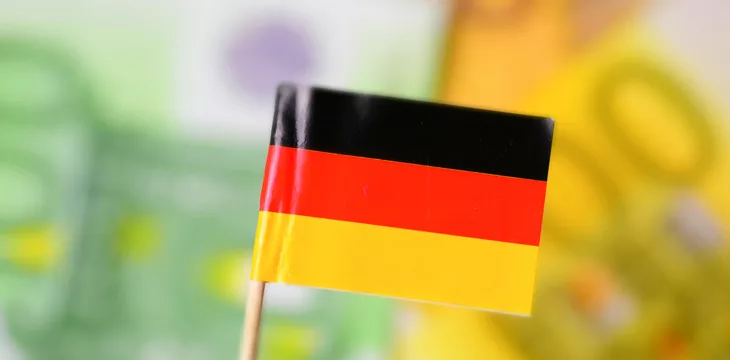|
Getting your Trinity Audio player ready...
|
German-based fund manager Union Investment has launched a new blockchain fund to diversify its portfolio. Dubbed the UniThemen Blockchain Fund, the blockchain-based fund will operate a multifaceted strategy, holding actual digital currencies and stocks linked to blockchain.
A closer look at the workings of the fund indicates that 15% of the holdings will be earmarked for digital tokens through certificates. Up to 65%-100% of the UniThemen Blockchain fund’s valuation will be deployed for stocks linked to blockchain, distributed ledger technology (DLT), and digital currencies. There are also plans to allocate a portion of its assets to bonds, as long as they don’t exceed 20% of the total assets.
Jochen Keller, head of Alternative Investments at Union Investments, noted that the DZ Bank subsidiary would follow the lead of its holding company in embracing digital currencies.
“The asset structure will become much broader in the future,” said Kerler. “Alternative forms of investment should also be expanded to include token-based assets.”
Union Investment’s parent company, DZ Bank, has previously launched a digital currency trading offering for German-based community banks, leaning on Metaco for a custody solution. Despite still awaiting its BaFIN license, DZ Bank is making significant plays in the ecosystem, laying the path for its subsidiaries.
Union Investment has previously initiated in Web3 investments, dipping its toes in euro-denominated digital bonds from the European Investment Bank. The fund managers also purchased a sizable share of Siemens digital bond in 2023, providing considerable experience for the firm to roll out its own Web3 fund.
German banks explore blockchain
Despite the reluctance of banking regulators to explore blockchain applications in finance, German commercial banks and fund managers are throwing their weight behind the technology. In a 2023 study, a coalition of lenders under the German Banking Industry Committee (GBIC) shared ambitious plans to use deposit tokens for interbank transactions.
German commercial banks are also looking for a larger role in the proposed launch of a digital euro to limit the risks of bank disintermediation and low adoption metrics.
“Based on today’s business relationships, commercial banks know best what their customers need from digital money – and this applies to both consumers, as well as the companies banks are doing business with,” read a paper from the Association of German Banks.
Watch: What can organizations do to get on the Web3 & digital identity bus?

 07-09-2025
07-09-2025 





